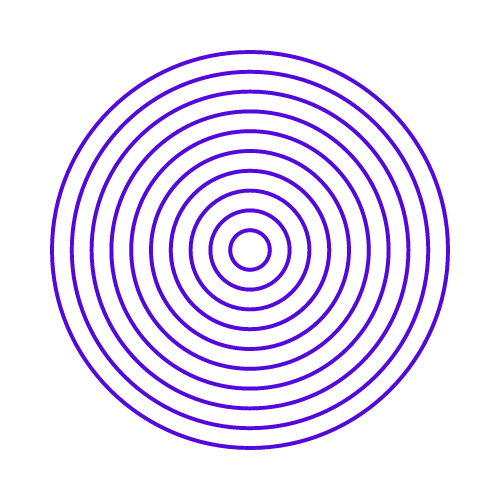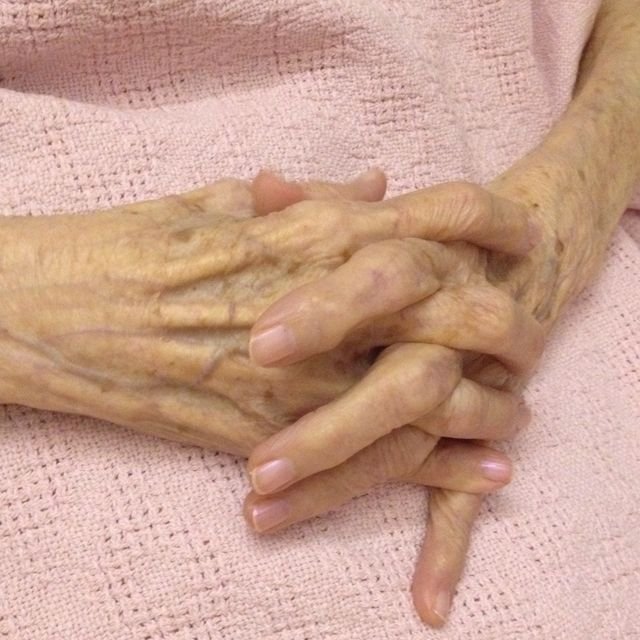Why Are We So Afraid to Age?
For my grandma, dousing her hair in store-bought dye with the happy, perfect woman on the box was another monthly chore. For 8-year-old me, it was a treat. The ritual and the smell were intoxicating. I would unfold the plastic gloves, stuff my small, clammy hands into them, mixing the color and developer and pretending I was making a potion.
She would sit on a chair in front of me, and suddenly we were equals. I got to work distributing the goop evenly through her roots. The ammonia burned my eyes, but I didn't mind. Every month, her silver hair would peek through, and every month she'd ask the shop assistant for the eggplant color, a rich purple-red. My task was to make sure every silver strand was covered, to hide the grays.
I took this task seriously because it was a way of feeling close to my grandmother. But it also left an imprint on my young brain that I'm still grappling with as an adult: the idea that gray hairs are unsightly, something we should want to cover up.
Millions of little girls have similar experiences, if not at home, then with their friends or through the media. This creates adults who spend $67 billion a year on "anti-aging" products.
Our society doesn't teach us how to look at aging in an empowering way. We see it as a problem to solve. We pluck out grays that we’re told grow when we're stressed. We read articles that say inflammation is the latest enemy of fine lines.
Aging is synonymous only with decay, the opposite of vitality and youth so venerated in our society.
Cred: Sandra Lazzarini
The aging or aged woman is feared in a patriarchal society. I recently finished The Crone by Barbara Walker, which explores the archetype of the older woman in the patriarchal psyche.
In patriarchal societies, old women do not hold great prestige as figures of wisdom and power. Instead, there is a deep fear of her.
Walker writes, "Until the Crone figure was suppressed, patriarchal religions could not achieve full control of men's minds. Such religions tended […] to fearful rejection of the Divine Old Woman, and by extension of old women generally."
Older women are such a threat to the patriarchy that they've been murdered in their thousands, accused of being witches.
Older women are harder to dominate. The more life experience you have, the wiser you tend to be. The wise thing to do in life is to live it on your own terms rather than caring what others think. This makes you more powerful. Wise and powerful women aren’t needed in a patriarchy.
Cred: Pantovola
In Neopaganism, three feminine archetypes define the life stages of a woman: the maiden, the mother, and the crone. The mother stage is more viscerally felt by women who have children of their own, but women who nurture and care for others’ children also experience the mother stage (if you’re one of those people, check out @richauntiesupreme on IG).
The maiden and mother archetypes have plenty to offer the patriarchy. The crone offers nothing except the possibility of destruction. She represents not only female power, but also death, and the end of a lifecycle.
In The Crone, Walker explores myths from different cultures to understand the origins of the idea of an old woman as death. In many of these myths, vulvas are considered both “gateways of immortality” and “executioners of men”, or a place for ghosts seeking rebirth.
Women create life that “mysteriously bears within it the seed of its own death”. Women’s bodies follow a cycle - like everything else in nature - of waxing and waning. This continuous loop of birth and death defined pre-patriarchal religions and their rituals.
Walker says, “This naturalistic world vision was pushed aside by rising patriarchal religions, which were basically anti-nature, viewing all flesh as sinful and all death as punishment rather than a universal recycling process.”
We can still see this representation of pre-patriarchal religions in today's Indigenous societies. Many of these societies see everything as sacred and imbued with the divine.
Even patriarchal systems like capitalism integrate this anti-naturalistic ideology. Our systems dismiss or punish rest, illness, and human limits. The year-round 9-5 schedule of capitalist society is antithetical to the seasonal and largely sedentary lifestyles of our ancestors.
It's no wonder that a system based in anti-naturalism has led to the climate crisis.
The archetype of the older woman is completely discarded in patriarchal religions. Almost all the major world religions worship an older male god. In Christianity, Mary represents maiden and mother, who became a mother without having to lose her “innocence”. There is no older female deity for Christians to learn from.
Growing up in patriarchal cultures, women and femmes quickly learn that becoming old is unacceptable. The destruction of the societal power of the older woman has led to indifference toward her. She becomes invisible, discarded, and rejected. So we spend billions of dollars and hours of our precious time trying not to look like her.
Cred: Frank Howell
In youthful beauty lies power, however fleeting or fragile. So we do whatever we can to hold on. We inject our skin with toxins, or we make some skincare CEO rich by buying “age-defying” goop with an 80% profit margin.
We are so utterly disconnected from the reality of the sacredness of our bodies. Bodies are the vessels that we inhabit to experience the world, they are ancient and complex marvels of nature. They are the universe reborn. And as with everything in the universe, our bodies are subject to entropy.
With the exception of Grace & Frankie and perhaps Griselda, there aren’t many depictions in the media of the power and wisdom of older women. Seeing aging as something to be “defied” and seeing “anti-aging” as a benefit reflects our society's problematic relationship with the natural progression of life.
Physical signs of aging are beautiful reminders of the accruing of life experience. They are a testament to our survival. Every gray hair is a strand of wisdom. Every wrinkle is like nature’s tattoo, etching a lifetime of laughter onto your skin.
There is power in youth and beauty. But the greater power is the one that can't be bought or sold.
A reframing of aging is urgently necessary. If we can understand that societal rejection of aging is rooted in fear, we can begin to approach our own aging process with courage. Maybe then we can transform aging into a source of joy and honor.





